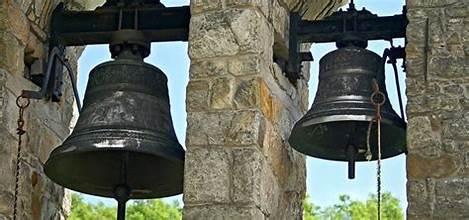Background Passages: Luke 2:9-14; Philippians 2:5-8; Ephesians 2:8; John 14:27; Isaiah 26:3; Philippians 4:11-13
You may know Henry Wadsworth Longfellow as the author of The Song of Hiawatha or Paul Revere’s Ride. One of America’s best and most prolific poets, Longfellow penned many poems, novels and anthologies. I found out recently that he also translated many European literary works into English, including Dante’s The Divine Comedy.
Like many poets, Longfellow experienced his fair share of tragedy. His first wife, Mary Potter, died suddenly while he was overseas. After a long courtship, he married Mary Frances Appleton in 1843. Together, they had six children. By all accounts, the marriage was a happy one until Frances died tragically in a fire in 1861.
With the outbreak of the American Civil war, Longfellow became a stout abolitionist. His oldest son, Charley enlisted on the Union side only to be wounded severely. In December of 1863, Longfellow found himself entering the Christmas season as a widower, with five dependent children and his oldest son on the brink of death.
As he tended to his son’s wounds, imagining the sounds of gunfire and cannon that injured him, he heard the bells of the local church ringing on Christmas morning. Longfellow sat down that evening, intent upon losing himself for a few hours in his writing. The result of that late night session was a poem entitled, I Heard the Bells on Christmas Day. Throughout the poem, the poet seemed to believe that the strife of the world had drowned out all hope of peace on earth and driven out any semblance of goodwill toward men.
Until he penned the last verse.
Then pealed the bells more loud and deep:
“God is not dead, nor doth he sleep;”
The Wrong shall fail,
The Right prevail,
With peace on earth, goodwill to men.
A few years later, the poem was set to music by British organist John Baptiste Calkin, becoming the familiar Christmas carol we know today.
The song, particularly the version sung by Casting Crowns, is beautifully poignant, confronting us of the turmoil of our world while also reminding us that God, through his son, offers peace and goodwill to a troubled world. Luke, the gospel writer, introduces the phrase to us in his account of the birth of Jesus. However, I might suggest to Longfellow that the phrase does not mean what you thought it meant.
When the angels sang their praise, they were not exalting God for bringing about the absence of conflict and harmony among all people. They were praising the father for his steps in bringing about, as Paul says in Philippians 4:7, “a peace that surpasses all understanding.”
Let’s take a closer look at the story as it develops.
After Mary gave birth in the dingy confines of a cave turned stable, God sent an angel…one angel…to announce the birth of his son to shepherds tending their flock in the hills overlooking Bethlehem.
An angel of the Lord appeared to them, and the glory of the Lord shone around them, and they were terrified. But the angel said to them, “Do not be afraid. I bring you good news that will cause great joy for all the people. Today in the town of David a Savior has been born to you; he is the Messiah, the Lord. This will be a sign to you: You will find a baby wrapped in cloths and lying in a manger.” (Luke 2:9-12)
It is after this initial explanation that the angelic host appeared singing in heavenly harmony.
Suddenly a great company of the heavenly host appeared with the angel, praising God and saying, “Glory to God in the highest heaven, and on earth peace to those on whom his favor rests.” (Luke 2:13-14)
Longfellow and the King James Version deeply ingrained the phrase as “peace on earth, goodwill toward men.” The New International Version of the phrase I used here reads differently. However, it is possibly more accurate to the original Greek, according to biblical scholars.
“Glory to God in the highest heaven and on earth peace to those on whom his favor rests.”
Amid his tragic circumstances, I’m not sure peace and goodwill meant the same thing to Longfellow as it did to Luke. As we enter this season of advent, maybe it’s a good idea for us to consider what the angels proclaimed to the shepherds with such joy and happiness.
First, the object of their apparent joy was not the anticipated peace and goodwill, but God who reigns in the highest heaven. By sending his son as a baby born in a lowly manger, God finally put in motion his path of redemption which he had planned before he breathed life into his creation.
Jesus, God’s son, would live his life among us, demonstrating how we are to live the life that God envisioned for us, ultimately giving his life in exchange for my sin and yours.
As Paul is urging the Philippians to model their lives after Christ, he tells them:
…have the same mindset as Christ Jesus: who, being in very nature God, did not consider equality with God something to be used to his own advantage; rather, he made himself nothing by taking the very nature of a servant, being made in human likeness. And being found in appearance as a man, he humbled himself by becoming obedient to death—even death on the cross.” (Philippians 2:5-8)
The angels recognized that the child born in Bethlehem was God’s great gift to a lost and troubled world. It would be this baby wrapped in cloth and resting in a manager filled with hay that would through his life, death and resurrection make joy of salvation available and attainable by all people. (See Luke 2:10)
For God so loved the world that he gave his only son that whoever believes in him shall not perish, but have everlasting life. (John 3:16)
It was this act of great love and grace that brought the angels to their feet in rising chorus to give all the glory and praise to a Father/God for what he had just done. The cries of a child in Bethlehem still reverberate through the lives of all who believe.
Glory to God in the highest heaven!
I was reminded again of the beauty of that gift when my eight-year-old granddaughter Lena called us over Facetime to tell us that she had made her faith commitment to Jesus. As I took in the expression of joy on her smiling face, I could hear the angels sing.
Glory to God in the highest heaven, indeed! For every man, woman and child who trusts Jesus as savior, the angels still sing God’s praise. Jesus told us as much in his parable of the lost coin.
In the same way, I tell you, there is rejoicing in the presence of the angels of God over one sinner who repents. (Luke 15:10)
While the heavens were praising God, the angels acknowledged the peace now available to those who find favor with God. That’s an important distinction. The angel who first appeared to the shepherds told them a child was born in Bethlehem who would be the long-anticipated Messiah. He announced it as good news of great joy to all people. The Messiah. Sent by God. Making salvation available to anyone and everyone.
However, peace is the gift offered to those “on whom his (God’s) favor rests.”
Good news offered to all. Peace offered only to those on whom his favor rests. It begs the question then, on whom does God’s favor rest? God’s favor rests on “whoever believes in him,” according to John 3:16. This is the gospel message that the angels shared. This is the good news.
For by grace you have been saved through faith. And this is not of your own doing, but it is the gift of God. (Ephesians 2:8)
I see a connection here through the definition of grace I learned as a teenager. Grace is defined as God’s unmerited or undeserved favor. When I put my faith and trust in Jesus, I entered into right relationship with God only by his grace. Only when he extended this unmerited favor to me upon my faith commitment to him.
Because that grace was extended, because God rests his favor upon me, I find his promised peace. It’s the same peace Jesus promised his disciples in the upper room before he was crucified.
Peace I leave with you. My peace I give you. I do not give to you as the world gives. Do not let your hearts be troubled and do not be afraid.” (John 14:27)
Every person in this world, whether or not he or she is a believer in Christ, longs for peace. The difference in the peace of a believer and a nonbeliever is where they acquire their peace. A nonbeliever depends on his own resourcefulness or his own resources. He seeks peace through social causes, financial gain or temporary distractions.
Believers find peace not from things the world offers, but from God. Where earthly peace depends on circumstances and individual ability, godly peace does not. God’s peace proclaimed and promised by the angels singing to shepherds transcends our circumstances.
We live lives that can in one moment be divine and in the next be dreadful. The peace God provides goes beyond those up and down seasons of life. This ability to find contentment, to live in the moment in the joy of Christ, regardless of life’s circumstance is completely dependent upon the depth of our faith and trust in God’s presence and promise.
Look at what Isaiah said.
You (God) will keep the mind that is dependent on you in perfect peace, for it is trusting in you. (Isaiah 26:3)
God will keep our hearts and minds at peace when we remain dependent upon him in all things by trusting in him through all things. Peace is not surrendering to the circumstance. Peace is surrendering everything in every circumstance to God. Trusting that he will be with us always…even when we “walk through the valley of the shadow of death.”
Paul addressed the issue in his letter to the Philippian church.
I am not saying this because I am in need, for I have learned to be content whatever the circumstances. I know what it is to be in need, and I know what it is to have plenty. I have learned the secret of being content in any and every situation, whether well-fed or hungry, whether living in plenty or in want. I can do all this through him who gives me strength. (Philippians 4: 11-13)
We find peace and contentment only when we know that God will give us the strength we need to live faithfully in any and every situation. It comes when we listen to the words of Jesus when he says, “Do not let your hearts be troubled.” When he says, “Do not be afraid.”
I’m certain you will read the Christmas story this year or have it read to you. I pray that you will not only hear the angels singing to the shepherds, but that you will join them in giving glory to God in the highest heaven for through his son he gives peace to those on whom his favor rests.
As he listened to those bells on Christmas day, Longfellow understood one thing when faced with all the hardships he encountered. “God is not dead, nor does he sleep.” Because he is ever with us, we can give Glory to God on high for the miraculous gift of his son Jesus. The one who brings peace to those on whom his favor rests. To all who believe in his name.








